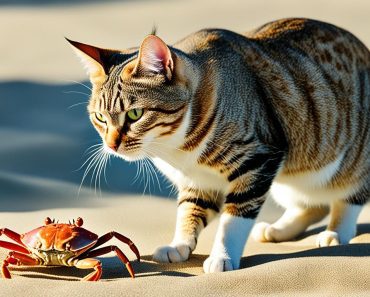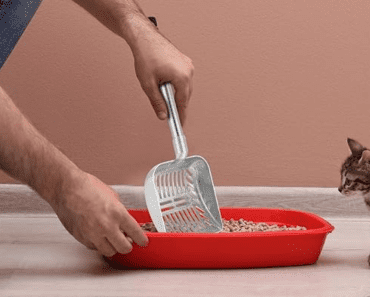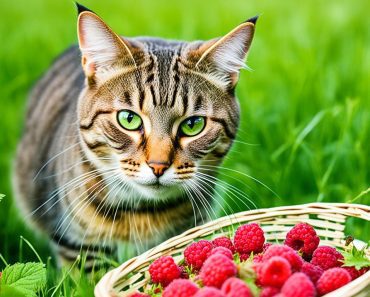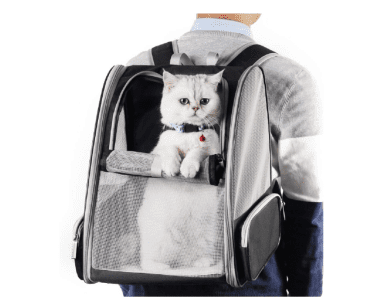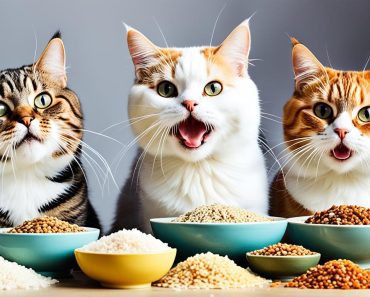Feeding our feline friends the right food is crucial for their overall health and well-being. As cat owners, we want to ensure that our furry companions receive the nutrition they need to thrive. But what about dog food? Many pet owners wonder, can cats eat dog food?
While cats are technically capable of digesting dog food, it is not recommended to feed them this long-term. Cats have unique dietary requirements that differ from dogs. To provide the best nutrition for your cat, it’s essential to feed them food specifically designed to meet their needs.
One important consideration is hydration. Some experts suggest offering wet cat food to support your cat’s hydration, as cats may not drink enough water on their own. Additionally, feeding a cat requires financial planning. According to Oakland Veterinary Referral Services, cat owners can expect to spend around $40 per month on food alone, while dog owners may spend up to $50 per month. With these expenses in mind, it’s understandable to wonder if your cat can eat dog food.
While cats can technically digest dog food, it is not suitable for their long-term nutritional needs. Cats require a diet that is specific to their carnivorous nature, with higher levels of proteins and essential nutrients. Feeding a cat dog food can lead to health problems such as diabetes, obesity, and nutrient deficiencies. It is important to provide cats with high-quality cat food that meets their unique dietary requirements. If you have any concerns about your cat’s diet or health, consult with a veterinarian for personalized advice.
Can Cats Eat Dog Food? Yes, they can. But they shouldn’t.
- Cats are capable of digesting dog food, but it should not be their primary diet.
- Feeding a cat food designed for their specific nutritional needs is recommended.
- Wet cat food may help with your cat’s hydration.
- Cat owners can expect to spend around $40 per month on food.
- Feeding a cat dog food in the long term can lead to health problems.
Can Cats Eat Dog Food? The Short Answer
Cats are capable of digesting dog food, so it’s unlikely to cause an immediate issue. However, it is important to note that your feline friend cannot be maintained on a diet of only dog food. In the long term, eating dog food can have significant health consequences for your cat, including diabetes and obesity. This is because dog food is designed for dogs, which require a diet higher in carbohydrates than cats, who can thrive without carbs.
According to PetMD, cats also need higher proportions of protein in their diet than dogs, as well as taurine, arachidonic acid, vitamin A, and niacin. These essential nutrients are vital for feline health and well-being. While dog food may lack the necessary nutritional balance for cats, it can also lead to nutrient deficiencies.
If you’re worried about something your cat has eaten, it’s a good idea to check with your veterinarian. They can provide guidance on suitable foods for cats and address any concerns you may have about your cat’s diet.
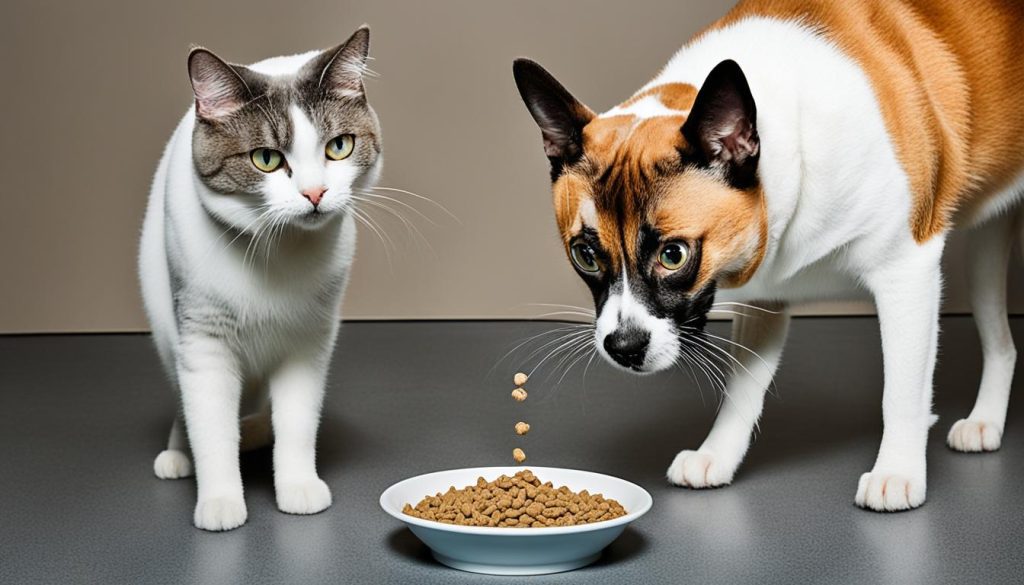
What to Do if Your Cat Eats Dog Food
Although including dog food in your cat’s typical diet is a bad idea, your cat should be just fine if it snuck a bit of food from your dog’s bowl at feeding time. If you’re worried about something your cat has eaten, it’s a good idea to check with your veterinarian.
It’s important to ensure that your cat gets the proper nutrition it needs by feeding it a balanced diet specifically designed for cats. Cats have different dietary requirements than dogs, and their nutritional needs should be met through cat-specific food. Feeding them a diet that includes dog food can lead to nutrient deficiencies and health problems in the long run.
If you suspect that your cat has eaten a significant amount of dog food, it might be wise to contact your veterinarian for advice. They can assess the situation and provide guidance on any necessary steps to take. Your veterinarian will be able to offer personalized recommendations based on your cat’s individual needs and circumstances.
In order to ensure that your cat remains healthy, it’s crucial to provide them with the right nutrition. This includes feeding them a well-balanced diet that meets their specific dietary requirements. By consulting with your veterinarian and following their advice, you can ensure that your cat receives the proper care and nutrition they need to thrive.
Cat Food vs. Dog Food: Key Differences
When it comes to cat nutrition, there are important distinctions between cat food and dog food. Cats are obligate carnivores, meaning they require a diet rich in meat-based proteins and animal fats to thrive. Unlike dogs, cats have specific nutritional needs that must be met for optimal health.
Cats need higher proportions of certain nutrients compared to dogs, including protein, taurine, arachidonic acid, vitamin A, and niacin. Taurine deficiency, for example, can lead to serious health issues in cats such as blindness or an enlarged heart. Unfortunately, dog food does not provide the necessary levels of these essential nutrients, which can result in protein deficiency and other health problems if fed to cats.
Furthermore, cats have different taste receptors compared to dogs and require highly palatable food. They may be more finicky eaters and prefer the flavor profiles of specially formulated cat food.
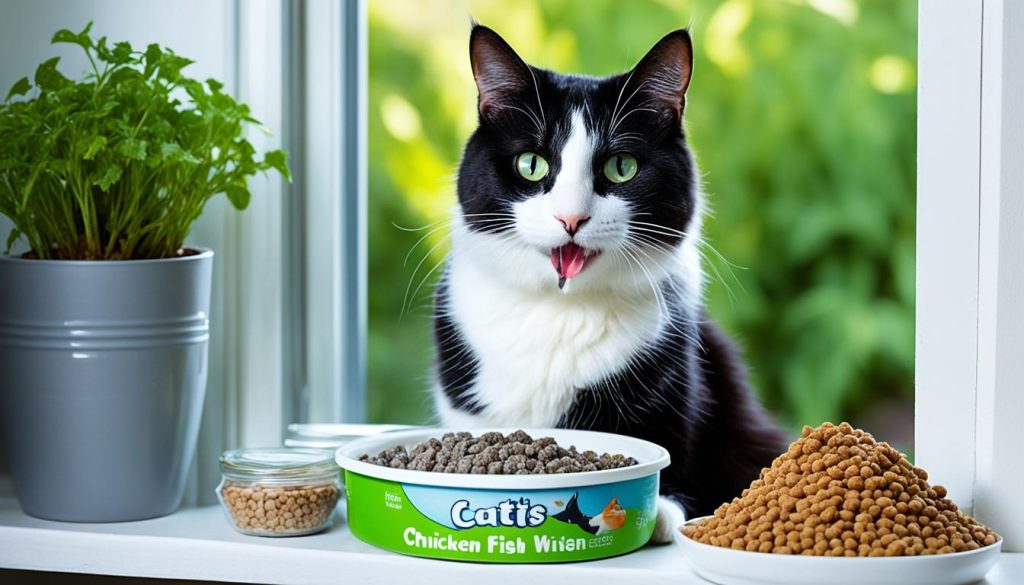
The Importance of Meeting Cats’ Specific Nutritional Needs
Meeting your cat’s specific nutritional needs is crucial for their overall well-being. By feeding them a diet designed for cats, you can ensure they receive the right balance of proteins, vitamins, and other essential nutrients.
Providing a high-quality cat food that meets their unique dietary requirements not only supports their physical health but also their longevity. Cats that receive proper nutrition are more likely to maintain a healthy weight, have a shiny coat, and experience fewer health issues as they age.
In conclusion, while cats may be able to digest dog food, it is not suitable for their long-term nutritional needs. Opting for cat food that is specifically formulated for their dietary requirements is essential to promote optimal health and well-being.
The Importance of a High-Quality Cat Food.
Feeding your cat a high-quality cat food is crucial for their overall health and well-being. Cat food is specifically formulated to meet the unique nutritional needs of cats, providing the right balance of proteins, vitamins, and other essential nutrients.
Cats have different taste preferences compared to dogs, and they are more likely to find cat food more appealing. It is important to choose a cat food that your feline friend enjoys, as this will encourage them to eat an adequate amount of food to meet their nutritional requirements.
When it comes to cat nutrition, protein is a key component. Cats require higher levels of protein compared to dogs to support their muscle development and overall health. Additionally, cats need specific nutrients like taurine, arachidonic acid, vitamin A, and niacin, which are essential for their well-being.
Feeding your cat a balanced and high-quality cat food ensures that they receive these essential nutrients to maintain optimal health. It can help prevent nutrient deficiencies and promote healthy digestion, a strong immune system, and a shiny coat.
By providing your cat with a high-quality cat food, you are giving them the best chance at a long and healthy life. Investing in their nutrition now can help prevent future health issues and expensive vet bills.
When choosing a cat food, look for brands that prioritize quality ingredients and meet the nutritional guidelines recommended by veterinarians. It’s always a good idea to consult with your veterinarian to determine the best diet for your cat based on their age, weight, and any specific health concerns.
- Feeding cats a high-quality cat food is essential for their overall health and well-being.
- Cat food is designed to meet the specific nutritional needs of cats, including higher levels of protein and essential nutrients like taurine, arachidonic acid, vitamin A, and niacin.
- Cats have different taste preferences compared to dogs, and it’s important to choose a cat food that your cat finds appealing.
- Opting for a high-quality cat food can help prevent nutrient deficiencies and promote healthy digestion, a strong immune system, and a shiny coat.
- Consult with your veterinarian to determine the best cat food for your feline friend based on their individual needs and health concerns.
Conclusion
After considering the question “Can cats eat dog food?” it is clear that while cats can technically digest dog food, it is not suitable for their long-term nutritional needs. Cats have unique dietary requirements due to their carnivorous nature, requiring higher levels of proteins and essential nutrients. Feeding a cat dog food can lead to various health problems, including diabetes, obesity, and nutrient deficiencies.
It is crucial to provide cats with high-quality cat food that meets their specific nutritional needs. Cat food is specially formulated to provide the right balance of proteins, vitamins, and other nutrients essential for a cat’s overall health. Cats also have different taste preferences compared to dogs, making cat food more palatable to them.
If you have concerns about your cat’s diet or health, it is always best to consult with a veterinarian. They can provide personalized advice and recommend the most suitable cat food based on your cat’s individual needs. Prioritizing your cat’s nutrition is essential for their overall well-being and longevity.


